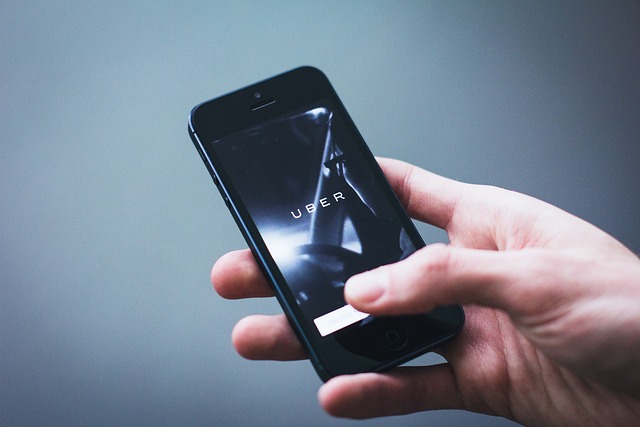Share This Article:

Sacramento, CA (WorkersCompensation.com) -- Back in 2020, California voters enacted Proposition 22, which went on to become Business and Professions Code Section 7451. That law turned back a previous legislative act in the Golden State that sought to classify "gig workers," like Uber and Lyft drivers and DoorDash dashers as employees, rather than independent contractors for purposes of workers' compensation laws.
Last week, Califorina's Supreme Court upheld the measure in Castellanos v. State, 2024 WL 3530208 (Cal. 07/25/24), which ruled that Section 7451 (nee, Prop 22) didn't violate the California constitution's provisions on legislative powers.
Quick Refresher
The law that Proposition 22 did away with was enacted in 2019 and went into effect in early 2020. It provided that a worker was an independent contractor and only if the hiring entity established:
(1) The worker was free from the control and direction of the hirer in connection with the performance of the work, both under the contract and for the performance of the work and in fact.
(2) The worker performed work that is outside the usual course of the hiring entity's business.
(3) The worker was customarily engaged in an independently established trade, occupation, or business of the same nature as the worker performed for the hiring entity.
In response, Section 7451 spells out that an app-based driver is an independent contractor and not an employee or agent if:
(1) The network company does not unilaterally prescribe specific dates, times of day, or a minimum number of hours during which the app-based driver must be logged into the network company's online-enabled application or platform.
(2) The network company does not require the app-based driver to accept any specific rideshare service or delivery service request as a condition of maintaining access to the network company's online-enabled application or platform.
(3) The network company does not restrict the app-based driver from performing rideshare services or delivery services through other network companies except during engaged time.
(4) The network company does not restrict the app-based driver from working in any other lawful occupation or business.
A lawsuit ensued, and it challenged Proposition 22 as limiting the authority of the state legislature to extend workers' compensation benefits to app-based drivers. At trial, the court agreed.
On appeal, the appellate court reversed, and that reversal prompted an appeal to the California Supreme Court.
The Law in Question
Under California's constitution, Article XIV, Section 4 grants the state legislature "plenary power . . . to create and enforce a complete system of workers' compensation," so the question that emerged in the case was whether Proposition 22 conflicted with that constitutional provision.
What did the California Supreme Court Say?
Looking to Independent Energy Producers Association v. McPherson, 136 P.3d 178 (Cal. 2006), the court found that the legislature's power was not exclusive of the people's initiative power, even if the constitution referred to "unlimited" plenary power.
"We concluded that the 'unlimited' clause is ambiguous and that there is no textual or historical basis to construe it to apply solely to the initiative power," the court wrote.
Additionally, the court explained that interpreting Article XIV, Section 4 power as exclusive "would unduly restrict the initiative power to give the Legislature what would essentially be a first-mover advantage, precluding the electorate from undoing any action the Legislature takes. ... Accordingly, the people may alter existing workers' compensation policy without running afoul of Article XIV, Section 4."
Thus, the court concluded that Proposition 22 did not conflict with the California constitution.
AI california case management case management focus claims compensability compliance courts covid do you know the rule emotions exclusive remedy florida FMLA glossary check Healthcare health care hr homeroom insurance insurers iowa leadership medical NCCI new jersey new york ohio osha pennsylvania roadmap Safety state info technology texas violence WDYT west virginia what do you think women's history women's history month workcompcollege workers' comp 101 workers' recovery Workplace Safety Workplace Violence
Read Also
About The Author
About The Author
-
Frank Ferreri
Frank Ferreri, M.A., J.D. covers workers' compensation legal issues. He has published books, articles, and other material on multiple areas of employment, insurance, and disability law. Frank received his master's degree from the University of South Florida and juris doctor from the University of Florida Levin College of Law. Frank encourages everyone to consider helping out the Kind Souls Foundation and Kids' Chance of America.
More by This Author
- Apr 01, 2025
- Frank Ferreri
- Mar 28, 2025
- Frank Ferreri
Read More
- Apr 02, 2025
- Liz Carey
- Apr 02, 2025
- Claire Muselman
- Apr 02, 2025
- Claire Muselman
- Apr 01, 2025
- Frank Ferreri
- Apr 01, 2025
- Chriss Swaney
- Apr 01, 2025
- Liz Carey




